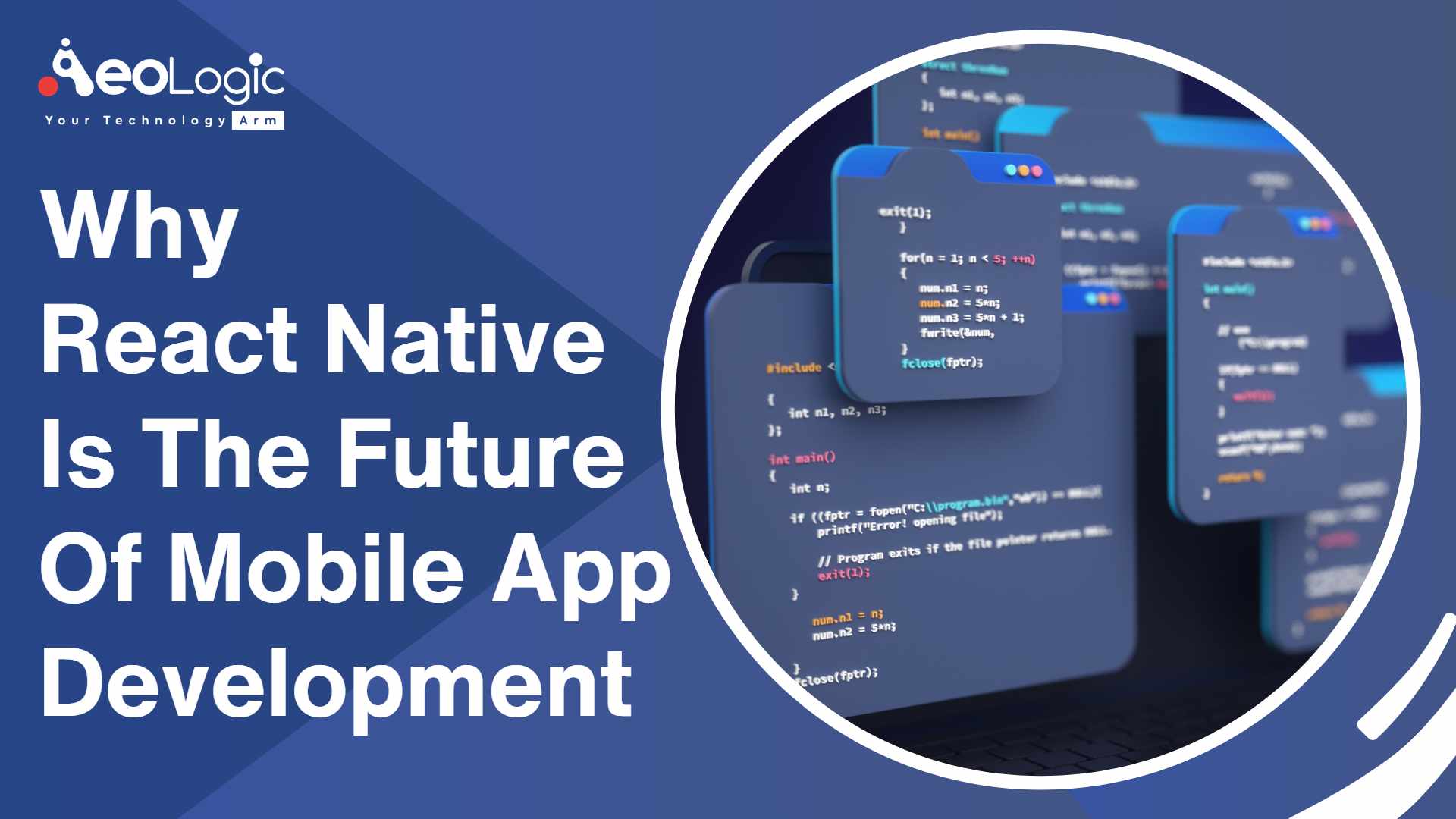As the world is becoming highly dependent on mobile technology, the need for high-quality mobile apps is continuing to grow. As an outcome, developers and businesses alike are persistently searching for the most operative and efficient approaches for building these apps. React native is future of mobile app development.
React Native is taking the tech world by storm already. It is gaining immense popularity within a short period of two years, specifically after big companies such as Walmart, Facebook, and Bloomberg made React Native their go-to technology. React Native is future of mobile app development companies. They are preferring this technology over others for a number of reasons. And it is harmless to mention that React Native is future of mobile app development.
React native is a popular open-source mobile app structure. It is allowing developers for building native mobile apps implementing the same design as React. In short, React Native is enabling developers for designing truly native mobile apps. By applying the same design principles and codebase as web apps designed with React.
Also read: Benefits of Mobile App for Your Retail Business
However, why is React Native the future of mobile app development? Following are just a few reasons:
Enhancing Performance
In addition to providing an improved user experience, React Native also provides improved performance. The reason is that React Native apps are constructed using native code. They are able to leverage the entire power of the device’s operating system and hardware. This is implying that React Native is future of mobile app development. The apps are smoother, faster, and more responsive than conventional hybrid apps.
Sharing Codebase
Another foremost advantage of React Native is the potential to share code between web and mobile apps. This processes that developers are able to reuse their existing codebase and build principles. Hence, decreasing the time and effort needed for building and maintaining multiple versions of an app. Also, this is allowing for simpler collaboration between groups and a more constant user experience across different channels.
Strong Community Support
React Native is an open-source structure. Which is implying that it has a robust and supportive community of developers behind it. This community is persistently contributing to the framework. Hence, adding new aspects and proficiencies and offering support and guidance to other developers. Therefore, this level of support is invaluable for developers and businesses considering adopting React Native.
Versatility and Flexibility
Finally, React Native is future of mobile app development. It is extremely flexible and versatile. It can be applied for building a broad range of mobile apps. Ranging from easy utilities to complicated, data-intensive apps. Furthermore, it is also offering a broad range of customization options. Therefore, enabling developers to modify their apps to the particular needs and likings of their users.
React Native is the future of mobile app development since it is providing enhanced user experience, improving performance, strong community support, a shared codebase, and versatility and flexibility. If your organization is exploring to build a high-quality mobile app, consider integrating React Native to take leverage of these benefits.
Cross Platform Compatibility
Majority of React Native APIs are cross platform which is implying that one component can operate equally well on both iOS and Android platforms. Subsequently, companies are offering React Native app development services. They are able to develop full-blown applications with the look and sense of a native app without requiring to write a single line of platform-specific code.
Shorter Development Cycles
Long development cycles may appear as a bummer to react native mobile app experts. However, it is not the case with this technology. Because of the availability of a state management tool called Reduxthe, development cycles can be shortened considerably without compromising on any feature of development. Apart from that, building one shared layer of data for both Android and iOS decreased any chances of app failure.
Open Source
React Native is future of mobile app development. It is an open source which suggests that there is a vast community of React Native application experts. These experts are continually working on bug fixing and technology enhancement. Their help can be taken for overcoming any challenge.
CodePush and Live Updates
React Native builds an extensive implication of JavaScript. And hence there are enormous advantages. Industry experts offering react native app development services can simply push the updates to the user’s device without requiring to go through the app store update cycle.
Also read: The Role of Blockchain in Mobile App Development
Final Words
React Native is one of the best structures that is applied for creating cross-platform mobile applications. It is open-source and minimizes the time for writing code. It is becoming a trend for applying and building high-quality apps. Therefore, in the digital era, Native React is future of mobile app development.
We have an array of experts in Android and iOS. They possess excellent knowledge, skills, and experience in the React Native framework. Do you want to boost your business? If so, then contact us today.
FAQs
Is React Native best for mobile app development?
As an established “hybrid” structure for mobile app development, React Native is effective at cross-platform responsibilities, popular among devs, and attractive. It is also helping to save time and money. Perhaps the only other multi-platform app development framework for giving React Native a good run for its money is Google’s Flutter.
What is the major advantage of React Native?
The biggest benefit of React Native is that developers don’t require for creating separate codes for different platforms (Android and iOS). In fact, reusing only approximately 90% of the code. Between the two platforms which facilitates increasing the development speed and productivity considerably.










